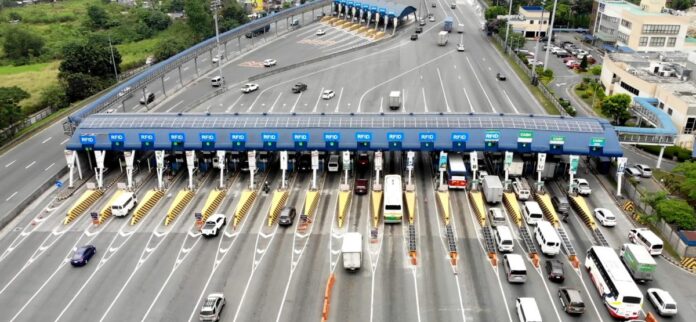-
Enhancements to the radio frequency identification system for the North Luzon Expressway (NLEX) and Subic-Clark-Tarlac Expressway (SCTEX) are ongoing
-
The RFID antennas on 56 NLEX-SCTEX toll lanes are being realigned to boost reading efficiency and the task should be completed by the third quarter this year
-
NLEX Corp. is also piloting the implementation of automatic license plate recognition or ALPR at 25 toll lanes in Valenzuela City.
-
The ALPR system uses smart cameras to read vehicle license plates and match transactions to improve safety and enforce traffic laws
Enhancements to the radio frequency identification (RFID) system for North Luzon Expressway (NLEX) and Subic-Clark-Tarlac Expressway (SCTEX) are making good progress, according to NLEX Corp.
The initial implementation of automatic license plate recognition (ALPR) is also making headway, it added.
The RFID antennas at 56 NLEX-SCTEX toll lanes are now being realigned to boost reading efficiency.
Expected for completion by third quarter this year, the RFID project will increase the number of toll lanes with “advanced reading” feature to 188 since a total of 132 antennas were realigned last year.
To provide an alternative way to process RFID transactions, 62 more toll lanes are being equipped with contactless Easytrip card readers, bringing the total number of toll lanes with card readers to 194.
“Aside from infrastructure building, we are also persistently working on digitizing and automating our business processes. We are continually adjusting our systems so we can provide a more efficient service to our motorists and afford them ease of travel,” NLEX Corp. president and general manager J. Luigi Bautista said in a statement.
READ: Mandatory cashless toll collection on Luzon expressways starts Dec 1
The use of RFID stickers for cashless transaction on all Luzon expressways was ordered by the Department of Transportation and the Toll Regulatory Board as part of their toll collection interoperability project launched in 2017. Toll operators started to implement mandatory cashless toll in December last year.
NLEX Corp., meanwhile, is also piloting the implementation of the automatic license plate recognition or ALPR at 25 toll lanes in Valenzuela City.
The ALPR system uses smart cameras to read vehicle license plates and to match transactions, improving safety, and enforcing traffic laws, NLEX Corp. said.
Since barriers are kept raised on Mindanao, Karuhatan, and Paso de Blas, the ALPR technology provides an automated process to facilitate easier matching of motorists’ entry and exit transactions. It also helps identify vehicles passing the RFID lanes without RFID stickers, have insufficient balance, or pose potential safety issues.
To improve operational efficiency, NLEX Corp. has also converted select toll lanes from mixed lanes (accepting both cash and RFID) to either cash or RFID lanes. It has also removed reloading lanes at the Balintawak and Bocaue toll plazas to relieve queuing.
In another development, NLEX Corp.’s parent firm, Metro Pacific Tollways Corp. (MPTC), has also been implementing upgrades in the infrastructure, network, account management system and toll collection systems of its expressway network.
The network is comprised of NLEX, SCTEX, Manila-Cavite Expressway (CAVITEX), and Cavite-Laguna Expressway (CALAX). The ongoing upgrades intend to improve the turnaround time of transactions and reloads as well as reduce system issues.
Currently, data transmission between the toll collection and Easytrip systems has been reduced from an average of 45 minutes to less than five minutes. Lane transactions, checking of account balances and reloading via certain channels are also immediately reflected in the RFID accounts of motorists.
The tollway firm also launched an improved customer account management system, enabling RFID subscribers to generate their own statement of account for monitoring, and to self-enroll in the automatic debit arrangement for easier load replenishment.
It also recently rolled out the country’s first toll top-up using mobile load in partnership with Smart Communications. Easytrip RFIDs can now be reloaded just by sending a text message using Smart and TNT mobile numbers.





